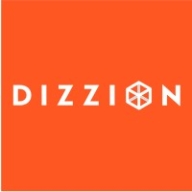

Dizzion and Azure Virtual Desktop are competitors in the virtual desktop infrastructure space. Azure Virtual Desktop seems to have the upper hand in scalability and integration with Microsoft services, whereas Dizzion is noted for its superior customer support and favorable pricing structures.
Features: Dizzion features a robust security framework, flexible cloud deployment options, and a simple management interface. Azure Virtual Desktop offers seamless integration into the Microsoft ecosystem, enhanced collaboration tools, and the ability to quickly spin up virtual machines.
Room for Improvement: Dizzion could improve by enhancing its integration capabilities and scaling options. Additionally, Dizzion may need to focus on offering more comprehensive collaboration features. Azure Virtual Desktop could benefit from simplifying its setup process, improving its customer service, and offering more competitive pricing for small-to-medium-sized businesses.
Ease of Deployment and Customer Service: Dizzion provides a straightforward deployment model and is known for its exceptional customer service. Azure Virtual Desktop involves a more extensive setup process but offers comprehensive integration capabilities that benefit enterprises using Microsoft products.
Pricing and ROI: Dizzion presents a competitive pricing model appealing to small-to-medium-sized businesses with its cost-efficiency and solid ROI potential. Azure Virtual Desktop might involve higher initial setup costs but provides significant long-term ROI through seamless integration and scalability, suitable for enterprises with existing Microsoft infrastructures.


Azure Virtual Desktop enables remote work by allowing employees to access their desktops and applications from anywhere, centralizing management, ensuring data security, and supporting collaboration.
Azure Virtual Desktop is essential for remote work, offering centralized management of desktops, a secure environment for accessing sensitive data, and facilitating collaboration. It reduces hardware costs, supports scalability, and simplifies IT tasks. The platform is scalable, integrates with Microsoft 365, and provides robust security features. Fast deployment, efficient management tools, reliable remote access capabilities, and cost-effective pricing make it versatile for diverse requirements. However, users report slow performance during peak hours, connectivity issues, difficulty managing virtual machines, high scaling costs, a complicated setup process, and compatibility issues with specialized software.
What are the most important features of Azure Virtual Desktop?Azure Virtual Desktop is widely implemented across industries like finance, healthcare, and education. Finance companies use it to securely access sensitive financial data remotely. Healthcare providers use it to offer secure access to patient records and applications, ensuring compliance with data protection regulations. Educational institutions leverage it for virtual classrooms, enabling students and faculty to access resources and collaborate from various locations.
Dizzion provides cloud-delivered desktops designed to meet the needs of modern businesses. It offers a secure, flexible environment for managing virtual workloads, enhancing productivity, and ensuring seamless user experiences.
Specializing in virtual desktop infrastructure, Dizzion ensures organizations can securely deploy virtual desktops accessible from any device, enhancing remote work capabilities. This approach allows businesses to maintain operational continuity while securing sensitive data and ensuring compliance with industry standards. By integrating with existing workflows, Dizzion supports enhanced productivity and scalability, leading to a more responsive IT environment.
What are the most important features of Dizzion?Dizzion is implemented across industries like finance, healthcare, and call centers, allowing organizations to maintain security and compliance while enabling flexible, remote work solutions. Each industry benefits from tailored features that address unique compliance and security challenges, ensuring reliable performance.
We monitor all Virtual Desktop Infrastructure (VDI) reviews to prevent fraudulent reviews and keep review quality high. We do not post reviews by company employees or direct competitors. We validate each review for authenticity via cross-reference with LinkedIn, and personal follow-up with the reviewer when necessary.